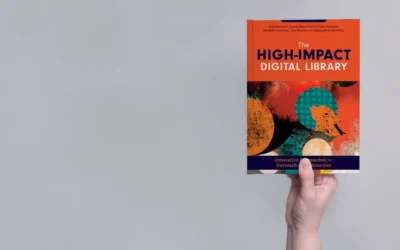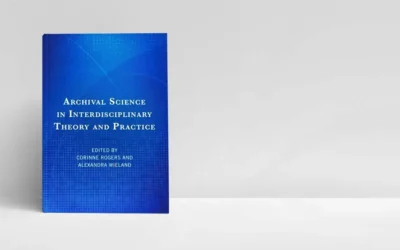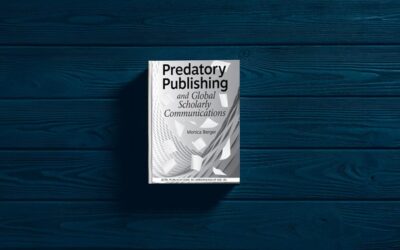Versatility: A Crucial Skill for Virtual Librarians
Miriam Kahn, MLS, PhD
We’ve all heard the phrase “Jack of all trades is a master of none, but oftentimes better than a master of one.” As librarians we are taught that “Librarians know a little bit about everything, and know how to find all the rest.” Please read on for my thoughts on skills for special librarians in virtual libraries.
The idea of librarians knowing a little bit about everything isn’t new or revolutionary. It does raise some questions in relation to a librarian’s versatility and skills, especially when working in a virtual environment. Does this attitude or aphorism of “Jack of all trades” apply to today’s information professionals, especially when working as Virtual Librarians? Is this a quality to embrace or reject? How can we apply the idea of being a generalist and make it work for us whether we have patrons in our information centers or contacting us via email and chat windows?
Generalists
Epstein writes in his book, “Range,” that specializing in a profession or skill at a later age is better.1 Using a variety of examples, he recommends trying lots of sports, activities, and skills first and then focusing on the specific skill when you have a sense of what you excel at. A generalist or broad foundation is the best education and builds a solid base of knowledge, especially in the world of information retrieval.
Librarians and archivists are taught to be generalists from the very beginning of their professional training. They are trained to be agile, adaptable, and versatile—to be generalists even within their specialization. Auspiciously, Epstein praises the skill of being able to adapt Skill A to Concept or Problem B. Isn’t that what information professionals do already? Information professionals are versatile and adaptable; skills for special librarians include being capable of finding information from a broad range of physical and virtual reference tools.
Embracing Versatility
Whether you are new to the profession or you’re a seasoned information professional, it’s never too late or too often to look into your bag of tricks and consider what aspects of your skills fit into the generalist category and which are truly specialized. This internal inventory is even more important when you work as a virtual librarian.
- Hone those generalist skills; emphasize how versatility and knowledge of a broad range of subjects makes information specialists marketable and adaptable regardless of where researchers and patrons are based.
- Use those generalist skills to learn a new database or catalog. Consider how the reference tools you use regularly help with discovery. Practice explaining how to use the resource when your patron is at a remote location.
- Identify which aspects of a database work better than others. Analyze the strengths and weaknesses of reference tools. Develop help aids for your remote researchers.
Case Study:
A user complained about a website and its associated database. The complaints focused around retrieval accuracy, or lack thereof. Being familiar with the resource, I knew that one could narrow search results by adding the author to the title query. In other words, increasing the number of keywords or phrases narrowed the results. Is this narrowing or limiting technique a searching skill that should be intuitive?
- As a veteran information professional, the answer is yes.
- For an individual in this Information Age who is assumed to have a level of information literacy? Maybe.
In this case study, we learn that the search feature contains little or no guidance. It lacks searching examples for users to learn from. The help feature does not include searching strategies or tricks. In other words, the database search feature isn’t intuitive. This database developer expected users to gain experience by trial and error. As information professionals, we can apply specialized knowledge of search strategies to a generic query. Ultimately, a robust series of help features will teach users how to narrow queries.
As databases become more dependent upon natural language and keywords in search boxes, researchers lose the discipline of targeting and honing their queries; the databases use fuzzy rather than Boolean logic, and results are imprecise, can be random, or contain useless information.
By flexing generalist searching skills, information professionals remain versatile, able to apply their knowledge of databases to extract specific information for researchers.
Summing it up
Knowing a little about everything is the information professional’s credo. In this information age, we must step back and revel in our generalist skills and status. We must hone our specialized skills while applying Skill A to Problem B. Our information seeking skills translate seamlessly into a virtual environment.
Using our vast experience and general knowledge makes us versatile and able to tackle the world of information and data retrieval no matter where our patrons reside, no matter what resource they use.
My next column will further consider how Virtual Librarians can apply their versatile or generalist skills.
1David Epstein, Range: Why Generalists Triumph in a Specialist World (NY: Riverhead Books, 2019). The C-SPAN BookTV interview on Aug 31, 2019 is here https://www.c-span.org/video/?463458-8/david-epstein-discusses-range
Miriam Kahn, MLS, PhD
Miriam B. Kahn, MLS, PhD provides education and consulting for libraries, archives, corporations, and individuals. See Miriam’s pieces for Lucidea covering library technology and skills for special librarians. For more on how to succeed in a virtual library, please read this post on maintaining connections to your clients.
Similar Posts
Researching with GenAI: Tools & Tips for Special Librarians
When GenAI first became widely available, there was a great deal of discussion about how it would “hallucinate”—that is, make up content and sound very sure of itself when doing so.
Interview with the Author: Anna Neatrour on The High Impact Digital Library
Many different types of libraries have digital components, and it is important to get those digital collections in front of stakeholders.
Interview with the Editors: Wieland and Rogers on Interdisciplinary Archival Science
Alexandra Wieland and Corinne Rogers co-edited Archival Science in Interdisciplinary Theory and Practice. My interview with them is below.
Interview with the Author: Monica Berger on Predatory Publishing
Predatory publishing is a concern in all areas of librarianship. In special libraries, librarians work with experts in various fields. It is vital that special librarians understand the sector-relevant publishing landscape, and which publications maintain academic integrity.




Leave a Comment
Comments are reviewed and must adhere to our comments policy.
0 Comments